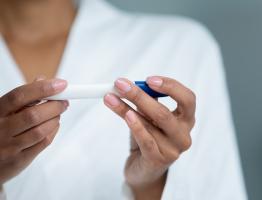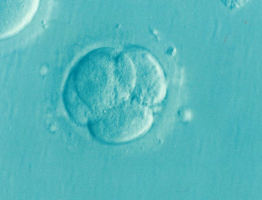133 results
Reset filters
Thinking about getting an AMH test to check your fertility?
Get the facts first!
Most women overestimate their chance of IVF success
New research shows that more than half of women who have IVF overestimate their chance of having a baby after one treatment cycle and wish that they had been given more realistic information about IVF and the likelihood of success.
New research on embryo testing (PGT-A)
New research from a global collaboration between clinics shows that embryos with a mix of normal and abnormal cells - called mosaic embryos- can develop into healthy babies.
Women are often told their fertility ‘falls off a cliff’ at 35, but is that right?
It’s a fact women’s fertility declines as they age. But the common description of fertility decline after age 35 as a “cliff” is more anxiety-provoking than factual. If you want children, it’s important to understand the biology of fertility. This can help those who have a choice about timing to decide when to start trying for a baby. And for those who don’t have a choice about timing, knowing what the options are can help make the best possible decisions.
Why you should avoid vaping if you want a baby in future
Vaping may seem less harmful than smoking cigarettes, which are known to increase the chance of infertility, miscarriage, and birth defects. But there is increasing concern about the health effects of e-cigarettes, including how they might affect your fertility.
Problems conceiving are not just about women. Male infertility is behind 1 in 3 IVF cycles
For the first time, IVF clinics in Australia and New Zealand have reported data about the scale and range of male fertility problems in couples who have IVF.
Thinking about freezing your eggs to have a baby later? Here are 3 numbers to help you decide
If you are thinking about freezing your eggs to use in the future, you may want to consider 3 important numbers to determine your likelihood of success.
Webinar- What is known about the health of children and young adults born after IVF or ICSI?
VARTA's 2022 webinar, what is known about the health of children and young adults born after IVF or ICSI, was held on 15 June. Three experts, Professor Jane Halliday, Professor Rob McLachlan, and Dr Sarah Catford discussed the history and evolution of treatments for male factor infertility and the long term health effects associated with these treatments.
Do COVID-19 vaccines affect IVF outcomes?
New research suggests COVID-19 vaccination does not affect your chance of success with IVF.




